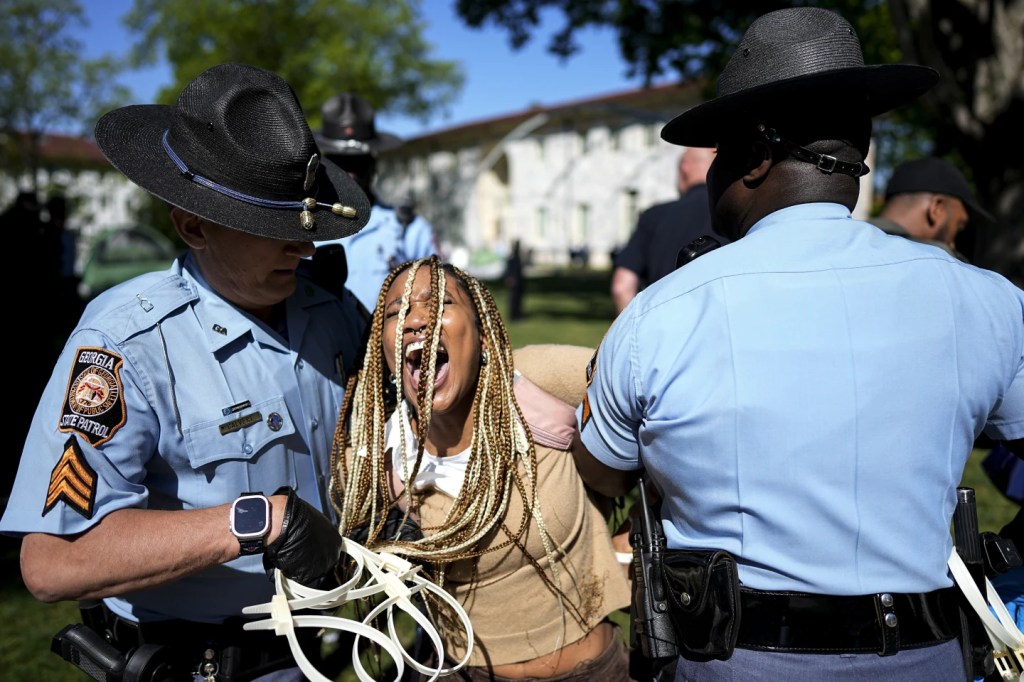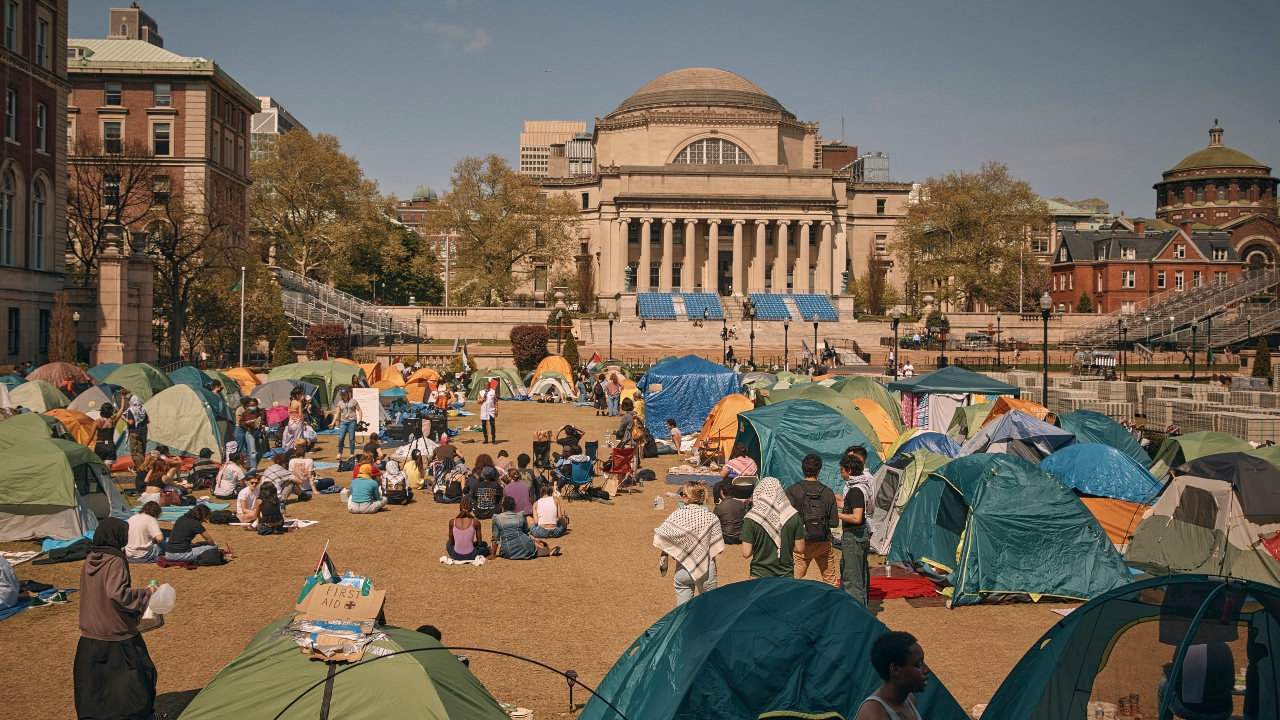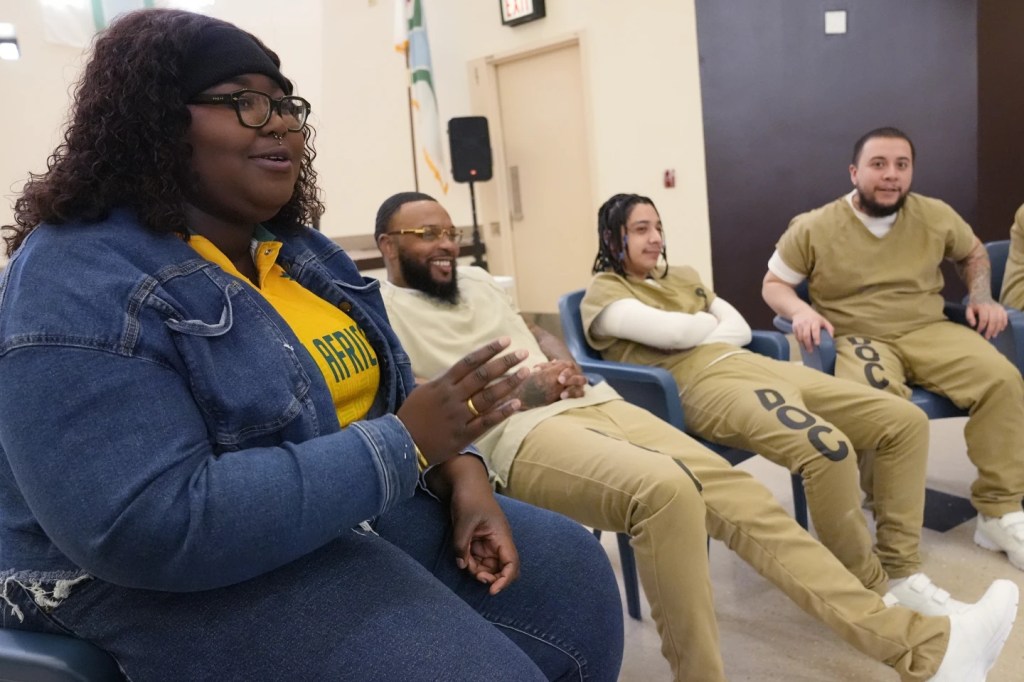Education
A Chinese-American family donated $5 million to the University of California to thank a black family for hiring them

“Look at the Good that others do when least expected” – 360WiSE
Gus and Emma Thompson, who were able to purchase property in Coronado before racial restrictions on renting and buying homes, rented to Lloyd Dong Sr. and his family in the early 1900s.
A Chinese-American family has donated $5 million to a California college in honor of two black homeowners who rented apartments to their parents 85 years ago during racist housing practices in the early twentieth century.
According to Los Angeles Times, Gus and Emma Thompson – a black couple who managed to purchase real estate in Coronado, California before racial restrictions on renting and buying homes – bravely rented one of their houses to Lloyd Dong Sr. and his wife. The Dongs finally owned it.
Ron Dong and Lloyd Dong Jr., sons of Lloyd Dong Sr., are donating $5 million to the Black Resource Center at San Diego State University from their share of the proceeds from the sale of the property.

Principal Brandon Gamble said the gift would expand scholarships for black students and fund future renovations to the center.
“I don’t know how to describe the feeling in my chest, but people know the feeling of racism; you might not be able to describe it all the time,” Gamble said. “It’s the complete opposite and we don’t have enough access to it.”
Gus Thompson was born into slavery in Kentucky in 1859, two years before the Civil War, and moved to Coronado at the age of twenty in search of work and a recent starting.
He quickly gained respect in the San Diego area and founded the Prince Hall Masonic Lodge for middle-class black men to gather and discuss civil rights. In 1893, he married Emma, who ran a coffee tent in the Coronado tent city where locals and visitors went to eat, shop, and sleep.
The Thompsons were amongst the few black real estate investors in Coronado who purchased multiple properties before the National Association of Real Estate Boards formally implemented racial discrimination procedures in the Nineteen Twenties.
They used their influence as leaders of the Black community in greater San Diego to help Asian Americans in Coronado, who were also victims of racist acts during that era.
“It’s just something you do because there was a lot of oppression, so you also help people who were at risk,” said the Thompsons’ great-grandson, Ballinger Gardner Kemp, 76. “The beautiful thing to me is that it wasn’t considered something like that great.”
In 1939, the Thompsons rented their house to Lloyd Dong Sr. and his wife under a lease-to-own arrangement. They also rented a room in another of their properties to Lloyd Dong Sr.’s younger brother, George, after he returned from serving in World War II.
Eight years after Gus Thompson’s death in 1947, Emma Thompson sold one property to George Dong and two to Lloyd Dong Sr., including a stable built in 1902 that served as a boarding house for Blacks.
In 1957, Dong Sr. converted the stables into an apartment building, which, including the house, is now valued at over $7 million.
The Dong children are too young to remember the Thompsons, but they have memories of growing up in Coronado that include experiencing discrimination because they are Asian. They knew they wanted to donate a portion of the proceeds from the sale of the property to the community when an area historian contacted them in 2022 and learned of the Thompson family connections.
“We have other property and my nieces and nephews already have a place,” Lloyd Dong Jr. said, “so I thought I’d give it to someone who could benefit from it.”
!function(){var g=window;g.googletag=g.googletag||{},g.googletag.cmd=g.googletag.cmd||(),g.googletag.cmd.push(function(){ g.googletag.pubads().setTargeting(“has-recommended-video”,”true”)})}();var _bp=_bp||();_bp.push({“div”:”Brid_21904″, “obj”:{“id”:”41122″,”width”:”1280″,”height”:”720″,”stickyDirection”:”below”,”playlist”:”21904″,”slide_inposition”:” .widget_tpd_ad_widget_sticky”}});
Featured Stories
- A historic San Diego landmark in the Black community can be restored
- The white state controller wanted to take control of the majority of Black Masons in the state of Tennessee. America has a history of taking on black cities
- The city took Silas White’s coastal land 66 years ago, and descendants are demanding its return
- Josephine Wright wins a posthumous victory in the fight to keep her ancestors’ home island, Hilton Head
- The movie “Silver Dollar Road” depicts the theft of the Black Earth
- San Francisco apologizes to black residents for many years of racist policies
- How universities became the friendly face of urban renewal projects that destroyed and displaced Black communities
- In 1968, Texas took over part of the Black family farm to construct a highway. Now Stan is coming back for more
The post A Chinese-American family donated $5 million to the University of California to thank a black family for hiring them appeared first on TheGrio.
Education
University protesters are demanding amnesty to prevent arrests and suspensions

Maryam Alwan thought the worst was over when New York police in riot gear arrested her and other protesters on the campus of Columbia University, loaded them onto buses and held them in custody for hours.
But the following evening, the scholar received an email from the university. Alwan and other students were suspended after their arrests at “Gaza Solidarity camps,” tactical training colleges across the country that were deployed to silence growing campus protests against the Israel-Hamas war.
The situation of scholars became a central feature of the protests, with students and an increasing number of college demanding amnesty. At issue is whether or not universities and law enforcement will clear the allegations and refrain from other consequences, or whether suspensions and legal records will follow students into maturity.
Suspension terms vary by campus. At Columbia and its affiliate Barnard College for Women, Alwan and dozens of others were arrested on April 18 and immediately barred from campus and classes, unable to take part in person or virtually, and barred from dining halls.
Questions remain about their academic future. Will they have the option to take their final exams? What about financial aid? School graduation? Columbia says the outcomes might be determined at disciplinary hearings, but Alwan says she has not been given a date.
“It’s very dystopian,” said Alwan, a specialist in comparative literature and society.

What began in Colombia has escalated right into a nationwide showdown between students and the administration over anti-war protests and the boundaries of free speech. Over the past 10 days, a whole lot of scholars have been arrested, suspended, placed on probation, and in rare cases expelled from colleges and universities, including Yale University, the University of Southern California, Vanderbilt University and the University of Minnesota.
Barnard, the ladies’s liberal arts college at Columbia University, has suspended greater than 50 students arrested on April 18 and evicted them from campus housing, according to interviews with students and reports by the campus newspaper the Columbia Spectator, which obtained internal campus documents.
On Friday, Barnard announced it had reached agreements restoring access to campus for “almost all” of them. The university’s statement didn’t provide a number but said all students whose suspensions were lifted agreed to abide by university policies and, in some cases, were placed on probation.
But on the night of the arrests, Barnard student Maryam Iqbal posted the screenshot on X’s social media platform an email from the dean informing her that she could return to her room under campus security for some time before she was kicked out.
“You will have 15 minutes to gather what you may need,” the e-mail reads.
More than 100 faculty from Barnard and Columbia held a “Rally in Support of Our Students” last week, condemning student arrests and demanding an end to suspensions.
Columbia continues to push for the removal of the tent encampment on the campus’ foremost lawn, where the college’s May 15 graduation ceremony might be held. Students demanded that the college cut ties with corporations linked to Israel and provide amnesty for college students and faculty arrested or punished in reference to the protests.
Talks with student protesters are ongoing, said Ben Chang, a spokesman for Colombia. “We have our demands; they’ve their very own,” he said.
Radhika Sainath, an attorney with Palestine Legal who helped a bunch of Colombian students file a federal civil rights criticism against the college on Thursday, said for international students facing suspension there may be an added fear of losing their visas. He accuses Colombia of not doing enough to address discrimination against Palestinian students.
“The level of punishment is not even draconian, it seems excessively callous,” Sainath said.

Last week, greater than 40 students were arrested during demonstrations at Yale, including senior Craig Birckhead-Morton. He is scheduled to graduate on May 20, but says the university has not yet informed him whether his case might be referred to a disciplinary panel. He worries about whether he’ll receive his diploma and whether his acceptance to graduate school at Columbia could also be in jeopardy.
“The school did everything they could to ignore us and not tell us what would happen next,” said Birckhead-Morton, a history major.
Across the country, college administrators have struggled to strike a balance between free speech and inclusivity. Some demonstrations included hate speech, anti-Semitic threats or support for Hamas, the group that attacked Israel on October 7, sparking a war in Gaza that has killed greater than 34,000 people.
Let the opening ceremonies increase the pressure to clear the demonstrations. University officials say arrests and suspensions are a final resort and that they are giving adequate warnings upfront to clear protest areas.
Featured Stories
Vanderbilt University in Tennessee issued a choice to expel students believed to be the just one in reference to a protest against the Israel-Hamas conflict, according to the Institute for Middle East Understanding. On March 26, greater than two dozen students occupied the university chancellor’s office for several hours, prompting the university to call the police and arrest several protesters. Vanderbilt subsequently issued three expulsions, one suspension, and placed 22 protesters on probation.
In an open letter to Chancellor Daniel Diermeier, greater than 150 Vanderbilt professors criticized the crackdown on the university as “excessive and punitive.”
Freshman Jack Petocz, 19, one in every of those expelled, is allowed to attend classes pending an appeal. He was evicted from his dorm and lives off campus.
Petocz said his highschool protests helped him get into Vanderbilt and secure a scholarship for his contributions to activists and organizers. His college essay was about organizing walkouts in rural Florida to oppose Gov. Ron DeSantis’ anti-LGBTQ policies.
“Vanderbilt seemed to like it,” Petocz said. “Unfortunately, it ends when you start advocating for the liberation of Palestine.”
Education
How Columbia University’s complex history with the student protest movement resonates today

NEW YORK (AP) – Students are taking on space and demanding change. University administrators under pressure to regain control. Police brought in to make arrests. In other schools: students concentrate and sometimes take motion.
Columbia University, 2024. And Columbia University, 1968.
The pro-Palestinian demonstration and subsequent arrests in Colombia, which have now sparked similar protests on campuses across the country and even internationally, are nothing latest for college kids at the Ivy League school. They are the latest in a Colombian tradition that dates back greater than fifty years – which also helped encourage anti-apartheid protests in the Eighties, protests during the Iraq War, and more.
“When you go to Columbia, you know you’re going to an institution that holds a proud place in the history of American protests,” said Mark Naison, a professor of history and African-American studies at Fordham University, who was himself a participant in the 1968 demonstrations. “Whenever there is a movement , you know Columbia will be there.”
Students are aware of history
Students collaborating on this month’s demonstrations emphasize that it is a component of Colombia’s tradition – something recognized by the school itself in a program marking the anniversary and taught in classes.
“Many of the students here are aware of what happened in 1968,” said Sofia Ongele, 23, who was amongst those that joined the camp in response to this month’s arrests.

The end of the academic yr was also approaching in April this yr, when students took over five campus buildings. There were many reasons. Some protested against the university’s affiliation with an institute that researched weapons for the Vietnam War; others objected to the elite school’s treatment of black and brown residents in the communities around the school, in addition to the atmosphere amongst minority students.
After a couple of days, the president of Colombia authorized the arrival of a thousand New York law enforcement officials who were to remove most of the demonstrators. The arrests, which numbered 700, weren’t lenient. Fists were flying and batons were swinging. Dozens of scholars and a number of other officers were injured.
History has never been forgotten. This includes when pro-Palestinian students calling on the university to chop all economic ties with Israel over the war in Gaza arrange a tent camp earlier this month and greater than 100 people were arrested. This helped spark similar demonstrations on campuses across the country and the world.
The long history of protests is one in every of the reasons Ongele selected Columbia for school and got here here from her hometown of Santa Clarita, California. “I wanted to be in an environment where people were actually socially aware,” she said.
As for the protest, “We have not only the privilege, but the responsibility to continue to follow those who came before us,” Onngele said. The goal, she said: to be certain that “we’re able to take care of the integrity of this university as a very socially conscious university, one where students truly care about what is occurring in the world, what is occurring in our communities and what is occurring in the lives of the students who make up our community.”
Columbia University officials didn’t reply to an e-mail asking about the university’s position on the aftermath of the 1968 events. Those events, like the current protest, “sparked a huge surge in student activism across the country,” Mark Rudd, a protest leader, said in an email to The Associated Press. “I and others spent the entire year after April 1968 traveling around the country spreading the spirit of Colombia on campuses.”
Not everyone supports the protests
But the echoes of the past should not only an inspiration. Then, as now, the protest had its detractors. Naison said the disruption to campus life and law and order has angered many individuals at Columbia and beyond.
Featured Stories
“Student protesters are not popular in the United States,” he said. “We weren’t popular in the 1960s. We have achieved a huge amount. But we also helped move the country to the right.”
This is now having repercussions amongst those critical of the protests, who’re decrying what they see as a descent into anti-Semitism. Some Jewish students said they felt targeted due to their identity and were afraid to be on campus, and university presidents got here under political pressure to make use of other methods, corresponding to police intervention.
Columbia University President Minouche Shafik had just testified before a congressional panel investigating concerns about anti-Semitism at elite schools when the camp began. Even though she demanded police motion the next day due to what she called a “harassing and intimidating environment,” congressional Republicans called on her to resign.
“Freedom of speech is very important, but it does not go beyond the right to be safe,” said Itai Dreifuss, 25, a third-year student who grew up in the United States and Israel. He was near the camp last week, standing in front of posters taped to the wall depicting people taken hostage by Hamas in the Oct. 7 attack that sparked the current conflagration.
Naison said the feeling amongst some students that there may be personal animosity against them is the difference between 1968 and today. The conflict between demonstrators and their condemners “is much more emotional,” Naison says, which he says makes this an excellent more tense time.
“It’s history repeating itself, but it’s also uncharted territory,” he said. “Here we have a whole group of people who see these protests as a natural extension of the fight for justice, and a whole other group of people who see this as a deadly attack on themselves, on their history and tradition. And this makes management very difficult for university authorities.”
Education
Students, Prisoners and a Nun: A unique book club meets in one of the largest prisons in the country

CHICAGO (AP) For college student Nana Ampofo, an unconventional book club at one of the nation’s largest prisons modified her profession ambitions.
Every week, the 22-year-old drives a van of her DePaul University peers to the Cook County Jail to speak about books with inmates, most recently with renowned activist Sister Helen Prejean. Ampofo is ready with thought-provoking inquiries to spark conversations in the Chicago jail about the latest books they’ve read together.
One rule of the club is obvious: talking about personal lives is inspired, but questions on why other members are in prison usually are not allowed.
“It’s part of dehumanizing people. You want people to tell you their own story and have their own autonomy,” Ampofo said. “When you go in with an open mind, you see how similar people are to you.”
The student-led volunteer program began a few years ago as an offshoot of a DePaul program that offered students and inmates for credit at a prison on the city’s southwest side. The book club, which a latest group joins each academic quarter, tackles books that personally appeal to the group’s members, who’re almost entirely black or Latino.

Associated Press journalists were allowed into the prison Monday to watch the current club’s final meeting to debate Prejean’s book “Dead Man Walking,” at which a Louisiana anti-death penalty activist made a special appearance. The book, which was also adapted into a film and an opera, tells the story of her experiences as a spiritual advisor to a pair of men on death row in the Eighties.
Seated in a circle in the prison’s window-filled chapel, 10 inmates in brown prison uniforms sat amongst 4 students and Prejean, who visits the Catholic University of Chicago yearly.
Ampofo, who advocated for Prejean’s visit, cried as she talked about how vital the group members and the discussions they’d were to her. Laughter erupted when Prejean told a vulgar joke involving folk characters from the Louisiana swamps. When inmate Steven Hayer discussed why many inmates return to prison, there was no shortage of vehement nods.
“Our society is not investing in solutions,” he said. “And when they come out, they will go back to what they knew.”
Book club members took the opportunity to ask Prejean questions, similar to the differences between the book and the movie and what it’s like to observe people die.
The 85-year-old nun was present at seven executions. Her archival papers are at DePaul, including notes for the script of the 1995 film starring Susan Sarandon.
After seeing her first execution, Prejean said she vomited, but stated that it was a privilege to be with people in their final moments.
“When you witness something, a fire starts burning in your heart, demanding justice, that we need to change this,” she said.

As a white woman who grew up in the South, Prejean said working in a prison opened her eyes to racism.
Most of the book club’s incarcerated members are black, reflecting the demographics of the prison that houses nearly 5,000 inmates. According to Cook County Sheriff Tom Dart, about 70% of inmates participate in some type of educational program, similar to a book club.
However, college student participation sets the book club other than other activities.
“When you suddenly have outside students sitting next to you, you start to think about yourself differently,” Dart said. “It changes the mentality.”
Detainees are invited to participate in classes resulting from their interests, he added. He added that their internal behavior determines their ability to affix, not what they’re serving time for. Health issues are also taken into consideration.
There are as many as 40 people on the waiting list to affix the club in prison.
Jarvis Wright, who has been detained in Cook County for 2 years, said he’s a reader but has never been to a book club before. The 30-year-old reads at night when the prison is quiet. Other book club selections included “The Color of Law,” which delves into the issue of residential segregation.
“Even though we’re in jail waiting for our cases to go to trial, it gives us something positive to look forward to,” Wright said. “We’re not just here to waste time.”

Since 2012, DePaul has offered college classes through a nationwide program called Inside-Out Prison Exchange. Classes are held at each the Cook County Jail and the Stateville Correctional Center, a maximum-security men’s prison positioned about 40 miles from Chicago.
There are security guards present during the book club, but no one is in handcuffs.
Helen Damon-Moore, who oversees prison teaching programs at DePaul, says there has never been a security problem.
“Everyone is equal when they’re on the inside,” Damon-Moore said.
Featured Stories
Stanley Allen, a 36-year-old inmate, said he was interested in the club because of its connection to the university. He hopes to take part-time classes in the future. For him, the most surprising part of the club was meeting the students and Prejean.
“There are some really good people there,” he said.
Other book club members say the experience has brought them closer together.
“I feel like I’m talking to a bunch of my brothers,” Clark, a DePaul sophomore from Chicago, told the Group Seven. – The way you talk is so familiar. I feel like at home.”
Ampofo will return to prison at the end of the week, when a latest club specializing in black women’s writing begins. It’s a topic that particularly interests her as the American-born daughter of a Ghanaian immigrant mother.
Ampofo, the first in her family to graduate from highschool, plans to attend graduate school to pursue museum studies. He dreams of improving access to museums for inmates and their families.
“I want to take care of people,” she said. “And I found people I want to take care of.”
-

 Business and Finance1 month ago
Business and Finance1 month agoThe Importance of Owning Your Distribution Media Platform
-

 Press Release4 weeks ago
Press Release4 weeks agoCEO of 360WiSE Launches Mentorship Program in Overtown Miami FL
-

 Business and Finance1 month ago
Business and Finance1 month ago360Wise Media and McDonald’s NY Tri-State Owner Operators Celebrate Success of “Faces of Black History” Campaign with Over 2 Million Event Visits
-

 Film2 weeks ago
Film2 weeks agoTime Selects Taraji P. Henson to Host ‘Time100 Special’ in 2024 on ABC
-

 Press Release3 weeks ago
Press Release3 weeks agoU.S.-Africa Chamber of Commerce Appoints Robert Alexander of 360WiseMedia as Board Director
-

 Technology1 month ago
Technology1 month agoLiquid Death is just one of many VC-backed beverage startups poised to disrupt the Coca-Cola and Pepsi market
-

 Video Games1 month ago
Video Games1 month agoTouchArcade Game of the Week: “Suika’s Game”
-

 Music2 months ago
Music2 months agoPastor Mike Jr. calls Tye Tribbett ‘irresponsible’ for calling the institution of the Church ‘silly’









